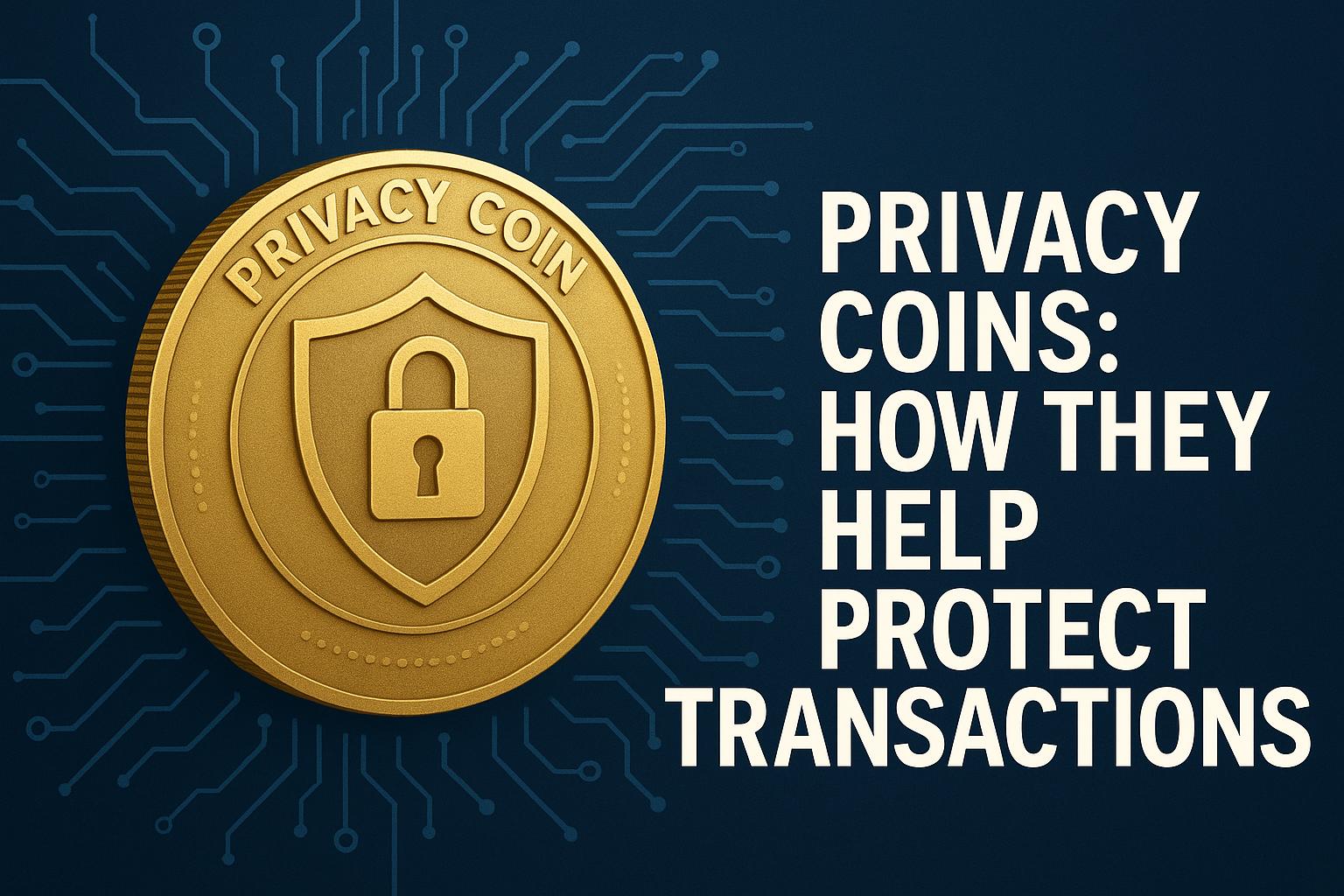Introduction to Privacy Coins
In the constantly evolving landscape of digital finance, the advent of privacy coins stands out as a notable innovation. These unique cryptocurrencies have been engineered to safeguard the privacy of transactions, ensuring that personal financial activities remain confidential and undisclosed. By leveraging sophisticated cryptographic techniques, privacy coins provide an enhanced level of anonymity, one that is frequently unavailable in more traditional cryptocurrencies such as Bitcoin.
Understanding Privacy Coins
Privacy coins distinguish themselves from other digital currencies through their focus on the anonymity and confidentiality of transactions. Unlike more conventional cryptocurrencies, which maintain an open ledger that documents every transaction, privacy coins utilize a range of technologies to conceal transaction information. This approach ensures that the identities of the parties involved and the specifics of the transaction amounts remain confidential and beyond easy scrutiny.
How Privacy Coins Work
To effectively protect transaction data, privacy coins employ a wide variety of techniques:
Obfuscation of Addresses: A common strategy used by privacy coins involves the use of transient or dynamic addresses. This method complicates efforts to associate transactions with specific users or wallets, thereby enhancing the overall security and privacy of users.
Privacy Protocols: Privacy coins often implement advanced technologies such as Ring Signatures, Zero-Knowledge Proofs, and Mimblewimble. These protocols play a crucial role in concealing transaction details by enabling verification without the need to reveal the exact parties involved or the transaction amounts. This balance of transparency and privacy is key to their appeal.
Common Privacy Coins
Over time, a variety of privacy-centric coins have gained recognition for their strong privacy features. Some of the prominent privacy coins include:
Monero: Renowned for its rigorous commitment to privacy, Monero uses stealth addresses and ring signatures to anonymize transactions, making it one of the leading choices for privacy-focused users.
Zcash: Offering users the distinct option between transparent and shielded transactions, Zcash employs zero-knowledge proofs to ensure that shielded transactions are kept confidential and private.
Firo (formerly known as Zcoin): Utilizing a unique privacy protocol that allows users to essentially ‘burn’ coins and redeem fresh, unrelated ones, Firo effectively breaks the transaction history chain, enhancing user privacy.
The Importance of Privacy Coins
As the global conversation around data privacy and surveillance intensifies, privacy coins serve as a vital instrument for individuals endeavoring to secure their financial privacy. For many, financial anonymity is more than a simple preference—it’s a necessity, especially for those residing in repressive regimes or regions where financial privacy is under constant threat.
Challenges Facing Privacy Coins
Despite their numerous advantages, privacy coins aren’t without challenges. One of the most daunting is regulatory scrutiny. Governments, alongside financial regulatory bodies, are grappling with the implications of completely anonymous transactions. The potential misuse of privacy coins for illegal activities is a contentious topic, prompting some exchanges to delist privacy-focused cryptocurrencies as they try to balance between legal compliance and user privacy.
The Future of Privacy Coins
The horizon for privacy coins can be viewed with a sense of cautious optimism. As advances in technology continue to unfold, it is reasonable to anticipate improvements in the capacity of privacy coins to protect individual transactions without compromising on regulatory obligations. Finding the right balance between individual privacy and necessary transparency is a fundamental challenge that developers, regulators, and the broader cryptocurrency community will need to tackle.
Conclusion
Privacy coins stand as a pivotal development in the sphere of digital currencies. By offering superior anonymity and security, these coins provide users with the tools to protect their financial transactions from unnecessary exposure. However, the persistent challenge resides in harmonizing privacy needs with regulatory frameworks, which will undoubtedly influence the future direction of privacy coins in the coming years.
Looking ahead, adopting privacy coins could become increasingly attractive for individuals keen on maintaining their financial autonomy, especially as digital currencies become more mainstream. Awareness and education around privacy coins and their benefits will play essential roles in their acceptance and usage. As the cryptocurrency landscape continues to evolve, privacy coins will likely remain an integral aspect of the broader digital finance ecosystem, championing the need for secure and private digital transactions.
This article was last updated on: September 4, 2025







